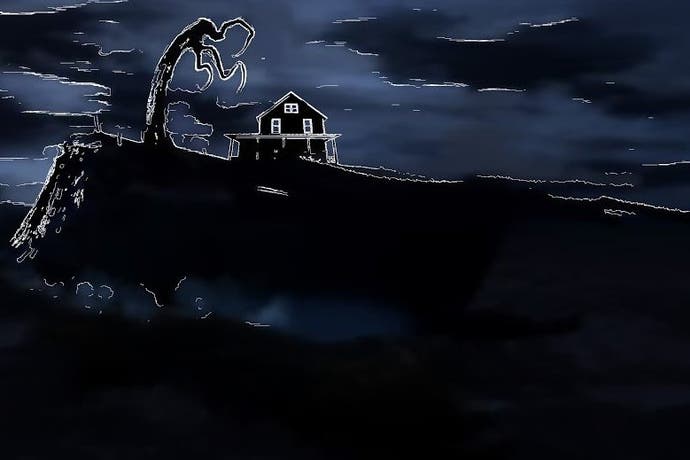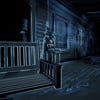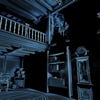Perception is a new horror game from some of the people behind BioShock
You play a young blind woman who investigates a haunted mansion.
Some of the people who worked on BioShock have announced a new first-person horror game in which you play a blind woman who investigates a haunted mansion.
Perception is the brainchild of Bill Gardner, a 12-year Irrational veteran who worked on everything from SWAT 4 to BioShock Infinite. Gardner worked on the Welcome to Rapture, Medical Pavilion and Fort Frolic levels from the first BioShock. These were considered the more slower-paced, horror-style levels in the game, and it's this specialism that fuelled the creation of Perception.
In Perception you play Cassie, a young blind woman who has suffered visions of a mysterious mansion somewhere in New England. After extensive research she tracks it down: the mansion is an abandoned estate on Echo Bluff, a remote peninsula overlooking the Atlantic Ocean in Gloucester, Massachusetts (coincidentally around 10 miles away from Bill's home).
Cassie ventures inside, desperate to discover the root of her visions. Although she is blind, Cassie uses what Gardner calls a "weird interpretation" of what echolocation might look like. So, any sound creates a visualisation, allowing Cassie and the player to see. The gameplay video, below, shows how this works.
However, there is a risk and reward element to the echolocation. Using a cane to thump the floor, Cassie can see, briefly, a visualisation of that area. But in doing so she creates sound, which may attract the Presence.
The Presence hunts Cassie as she attempts to uncover the secrets of the mansion. Her only option is to run and hide, but she can use objects placed in the game world to create "sound bombs" that distract her enemies. The Presence is a bit like the alien from Creative Assembly's Alien Isolation, which Gardner sites as an inspiration for the gameplay feel he wanted.
Perception leans heavily on narrative-driven gameplay as well as exploration as Cassie learns more about what went on in the mansion. Her smartphone is key to this. You can use an app to turn letters into audio, for example, and another app to call in the help of a friend, who will describe certain objects or environments in a similar way to Metal Gear Solid's contextual radio.
Eventually, Cassie travels back in time to various points in the mansion's existence, and the player gets to see the house in previous states, with new characters, architecture and décor. Once you've discovered the source of evil in each generation, it's your job to right the wrong.
Gardner likens Perception to Gone Home, the narrative-driven first-person adventure co-created by Steve Gaynor, who he worked with for around a year on BioShock Infinite while both were at Irrational.
And the Irrational link is stronger still. Gardner set up a new studio called The Deep End Games to make Perception, and he's working with a number of former BioShock developers, including Jim Bonney, who was the audio director on BioShock Infinite, and Robb Waters, who worked on a variety of iconic Irrational game characters, including System Shock's Shodan, Thief's Garret, BioShock's Little Sisters, Andrew Ryan, Sander Cohen, Handyman, the Motorized Patriot and the Songbird. Ben Johnson, who was the level designer on the first Dead Space game, is also involved.
It's not quite an Irrational revival, but The Deep End Games retains the spirit of the studio, which was shut down following the release of BioShock Infinite.
"You'll see the same commitment to the level of quality, but also a lot of the core elements of trying to make sure the narrative is done in the right way," Gardner told Eurogamer.
"The kind of stories we're telling - we're not going to be locking you in cut-scenes. A lot of that fundamental Irrational bits will certainly be there."
Gardner has launched a Kickstarter for Perception, asking for $150,000 to develop the game. If all goes well, a Steam launch is planned for 2016. Gardner would like to make console versions, but this depends on the eventual budget available.
An interesting stretch goal is "GTFO". Here, Perception creates a randomised version of the mansion, which does its best to prevent the player from escaping. GTFO is inspired by Quick Mission mode in Irrational's SWAT 4, which Gardner worked on, the idea being to make horror replayable.





